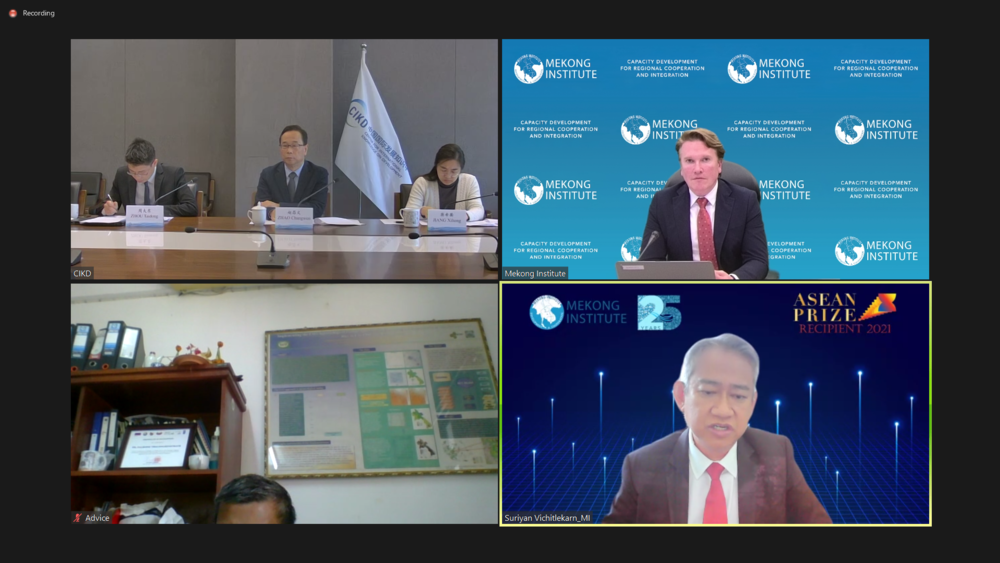On February 15, 2023, the Center for International Knowledge and Development (CIKD) launched its flagship report on China-ASEAN Economic, Financial, and Development Cooperation marking the 25th anniversary of the ASEAN Financial Crisis.
Mekong Institute (MI)’s Executive Director, Mr. Suriyan Vichitlekarn, delivered a presentation at the second session of the conference titled “Approaches to deepening China-ASEAN development cooperation.” His speech, titled “Reinforcing ASEAN-China Cooperation through the Global Development Initiative (GDI) and Lancang-Mekong Cooperation (LMC)”, discussed approaches to strengthen China-ASEAN cooperation.
This was the key message conveyed in his speech:
The LMC was a useful complement to China-ASEAN cooperation, which helps promote the economic and social development of its members, narrow development gaps, and upgrade overall cooperation between China and ASEAN.
Distinguished speakers included:
- Suriyan Vichitlekarn, Executive Director, Mekong Institute
- WU Zhong, Director-General, Finance Center for South-South Cooperation
- Chirachai Punkrasin, Executive Director, ASEAN Centre for Sustainable Development Studies and Dialogue
- Kuik Cheng-Chwee, Head of Centre for Asian Studies, National University of Malaysia
- Guo Yanjun, Director, Institute of Asian Studies, China Foreign Affairs University
- Palikone Thalongsengchanh, Senior Researcher, National Institute for Economic Research of Laos
- SIM Sokcheng, Director, Center for Policy Research in Agriculture and Rural Development, Cambodia Development Resource Institute
- VU Minh Khuong, Associate Professor at Lee Kuan Yew School of Public Policy, National University of Singapore
- Austin Ong, Programs Director, Integrated Development Studies Institute








